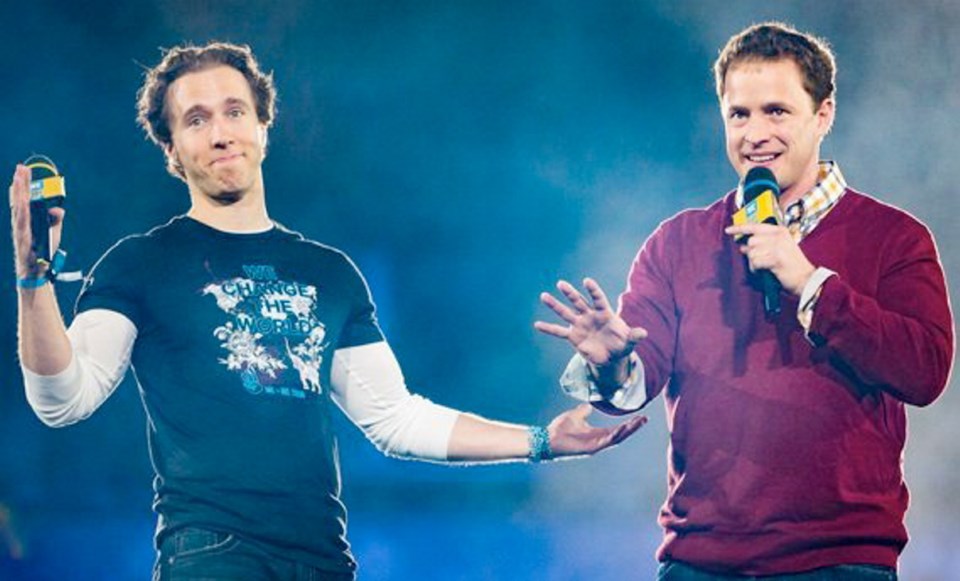There’s a trend in the slate of recent sci-fi blockbusters: most don’t give humanity much to root for.
Ready Player One shows a bleak world on the brink of social collapse. In A Quiet Place, the last humans struggle to eke out survival on Earth. Theatres screen post-apocalyptic mayhem in the Maze Runner and Future World, and it makes us wonder if science can’t save us in real life.
Through our development work around the world, we’ve seen technical breakthroughs help solve some of the world’s most pressing crises. There are smartphone networks that help farmers in Latin America fight drought and famine with predictive weather forecasts, and mobile phone mounts that let optometrists diagnose eye conditions in remote communities thousands of miles away.
Who’s writing the screenplay about a world without poverty?
“Science fiction started out aspirational,” says Alyx Dellamonica, Toronto-based author of the eco-fantasy Hidden Sea Tales trilogy. “We’re going to get off Earth, we’re going to go to the stars, we’re going to find our destiny beyond this little mud ball.”
Lately, it seems that Hollywood is banking more on the fallout of humanity’s failure — and we get it, conflict fills seats. But mainstream movies do play a part in the real-world reputation of science and human innovation. Sci-fi shapes public thought while politicians seek support for evidence-based policies on climate change or vaccine deployment.
“If we don’t start imagining futures where we make it as a species, we won’t,” says Dellamonica.
We’re glad that Dellamonica is imagining it. She recently travelled to Guizhou province in China for a writing workshop designed to tap Canadian and Chinese science fiction writers for stories that envision solutions to rural poverty. Her next book imagines a futuristic world where humans make the most of breakthroughs such as nano-plastics that filter clean water from the air and recycling technology that turns nuclear waste into household-safe batteries.
We’d love to see more stories where science is the hero and humankind isn’t doomed.
Imagine: Milla Jovovich leads a team of geneticists to stop the next viral outbreak before it happens (sorry, Resident Evil). Or, Charlize Theron invents an alternate energy source to save the world from post-oil collapse (move over, Mad Max).
A lot of us get our information — and inspiration — about science and tech from TV, books and movies. Star Trek, one of the biggest utopian sci-fi series in history, is famous for inspiring or predicting world-changing inventions like the cellphone, ultrasound diagnostic devices and 3D printers. It gave the next generation of scientists a target to shoot for and a vision to believe in. We still need that belief in science and in human innovation, now more than ever.
We want young people to get excited about STEM education and look for solutions to poverty, hunger, disease and inequality. We want politicians to campaign on promises of science funding and follow through because their constituents care.
We want what any good Star Trek fan wants — a future where our planet can live long and prosper.



